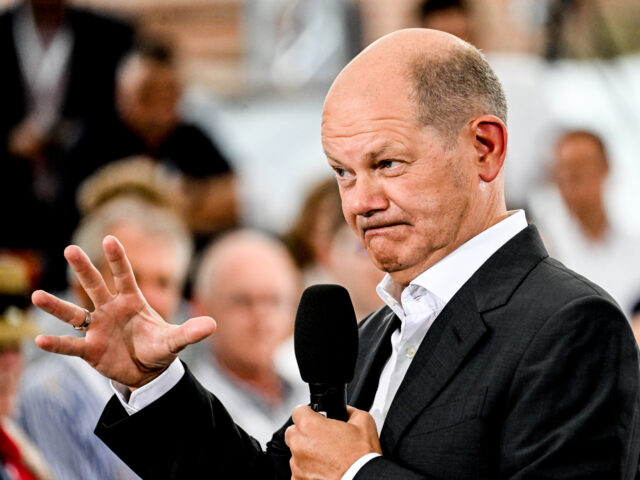As politicians in Germany brace themselves for possible riots over the winter months due to ongoing gas chaos, its leftist Chancellor has insisted that the country’s “hearts and borders” will nevertheless “remain open”.
Despite the country facing a wealth of crises, ranging from inflation to energy, Germany’s leftist Chancellor, Olaf Scholz, has insisted that the country’s “borders and hearts” will “remain open”.
The Chancellor’s statement comes as his nation faces a winter where much of the public may be left unable to heat their homes — an ever-more-likely eventuality that has many bigwigs expressing open concern that they may end up being forced to deal with gas riots.
Despite such a violent future being possibly on the horizon as a result of chronic political mismanagement, which includes the government’s undying support for energy sector sanctions against Russia, Olaf Scholz has insisted that his country will keep supporting Ukrainian war efforts indefinitely.
According to a report by Die Welt, Scholz also promised that his country would remain willing to take in limitless numbers of supposed refugees.
“Our borders and our hearts remain open to everyone who has to flee from Russian terror,” Scholz declared. “You are very welcome.”
According to state-owned publication Deutsche Welle, there are just under one million refugees ostensibly from Ukraine registered in Germany as of early August.
The leftist official also declared that Germany was planning on sending more arms to the country, which has now spent the last six months fighting Russian invaders.
While Germany’s political class largely remains mostly committed to targeting Russia with sanctions on its energy exports — despite the fact that Germany itself is heavily addicted to these very sources of energy — it seems like those in power are beginning to doubt the commitment of their general public.
Many officials in the country have openly expressed concerns about the possibility of gas riots in the coming months should people be left unable to properly heat their homes, with others saying that they fear that right-wing populists could seriously gain in popularity as the country falls further and further down the economic abyss.
One official — who branded those looking to challenge the nation’s political class on these issues as conspiracy theorists and the “new enemies of the state” — expressed particular concern that populists in the country were getting better at addressing the concerns of the average German.
He decried the fact that opponents “are increasingly addressing the issues of the Ukraine war, the crisis, the gas crisis, prices, and are trying to get more people together” — something he apparently believes is a bad thing within a democracy.
Meanwhile, the country’s Antifa-linked interior minister, Nancy Faeser, has decried the possibility that those on the right will “misuse” the country’s cost of living crisis to become more popular, seemingly by presenting people with alternative ways of dealing with it.
“We can assume that populists and extremists will again try to influence protests to their liking,” a spokesman for the minister previously said. “Extremist actors and groups in Germany can lead to a growth in dangers if corresponding social crisis conditions allow for it.”
It is likely worth treating officials’ use of the word “extremist” with a degree of caution, however, with the German state having a habit of putting opposition parties under state surveillance for having political views establishment parties view as problematic.

COMMENTS
Please let us know if you're having issues with commenting.